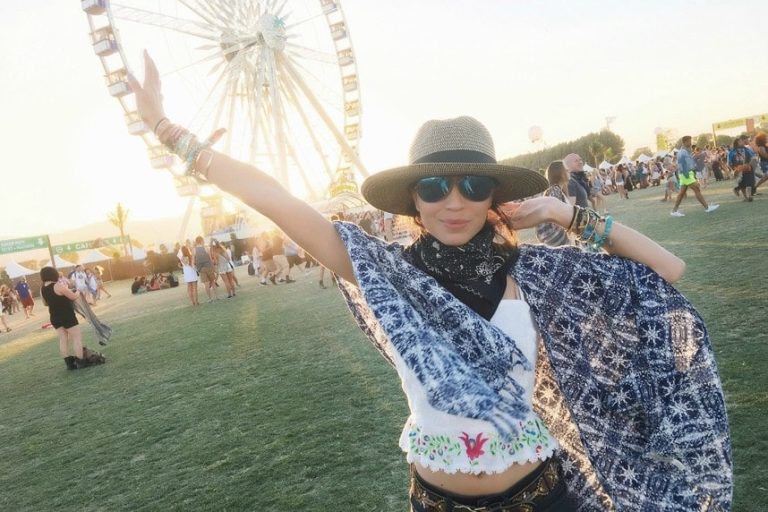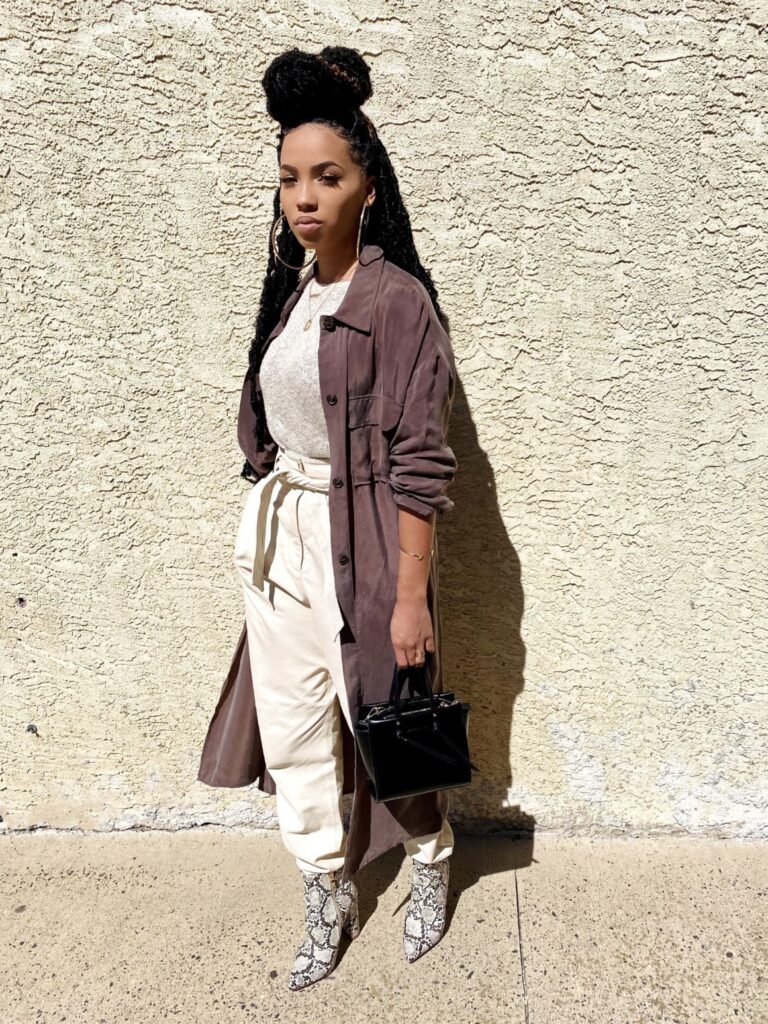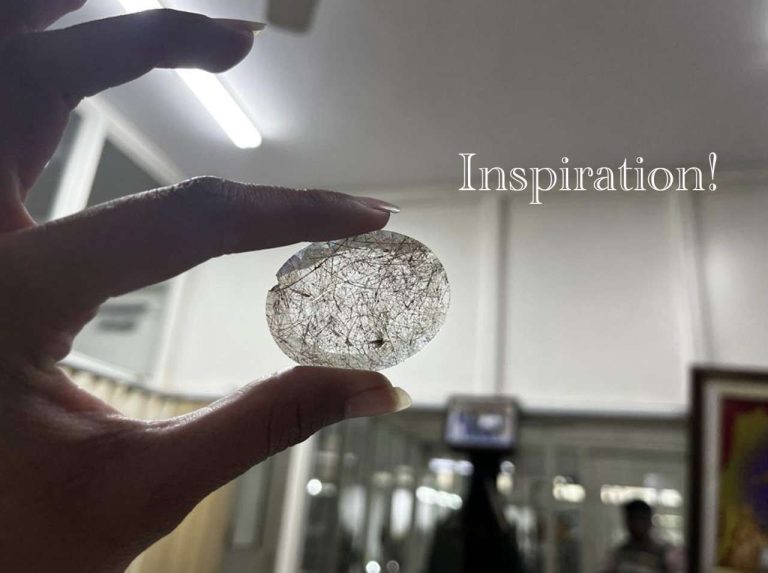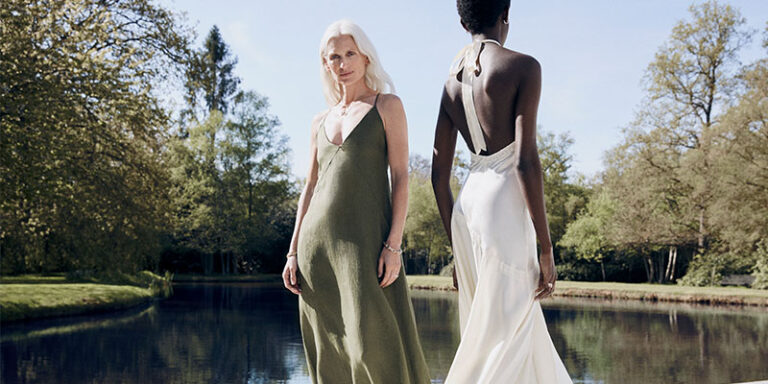Why does fashion repeat itself? The cyclical nature of fashion? – Unleash Fashion
Have you ever wondered why certain clothes never go out of style and some lose their trend within a few weeks? Fashion trends today see a lot of fluctuation. It has been so difficult even to forecast the upcoming trend accurately. On the other hand, some never go outdated and still remain a sensation in the market even after decades, Chanel suits for example! But the question that comes here is, why does some fashion repeat while others fad?
Let’s understand, What is the Cyclical nature of fashion?
The cyclical nature of fashion trends refers to the recurrence of certain styles, designs, or elements in fashion over time. This repetition can occur across different eras, seasons, or even within a single collection. Repetition in fashion trends can take many forms. For example, a specific color or pattern may reappear in multiple collections over time, or a particular silhouette or style may be popularized by a designer and then replicated by others in subsequent seasons. Repetition can also refer to the use of certain fabrics, textures, or details that are repeated in multiple pieces within a collection or across different collections.
For example; Denim is ubiquitous started as a rebel in the 70s and yet remains a hot trend in fashion, High-waisted jeans is another example from the 70s which came back, as cat-eye glasses, flared boots, leather jackets like many repeating fashion that we see on trend today.

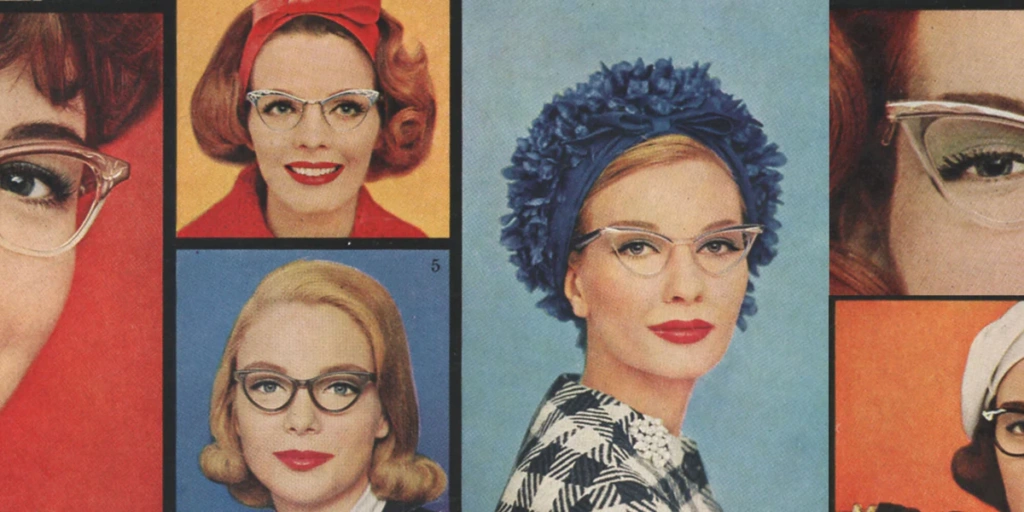
Why does fashion repeat itself?
Repetition in fashion means, it is cyclical. Fashion is cyclical due to several factors involved, such as:-
- Design plays a major role in deciding the longevity of its presence in the market. Fashion is majorly dependent on design.
- Viral trends often become the part of fashion cycle, when worn by a famous celebrity. This increases the consumer’s demand for the same fashion they see their ideal wearing.
- Inspiration and theme for that fashion also have a significant impact on fashion being repetitive. Sometimes, a particular collection gets high demand all of a sudden, this is due to its distinct attractive design, which increases the demand, and thus repeats in the coming season as well.
- Brands’ popularity and identity are yet another common factors for the repetition of fashion. People buy branded clothes for the symbolism which urges brands to repeat fashion.
- Morals and ethics do help in making fashion cyclical. If the brand talks about the environment and preservation, it has a longer chance to repeat again.
- The classics are those pieces that always remain in the cycle of fashion has a lot to do with the influence of blockbuster movies or iconic pop stars. This is one of the major causes of the cyclical nature of fashion.
- Tradition or cultural values are also one surprising factor that encourages fashion to repeat. In order to preserve these values a segment of trend is always a repetitive fashion. By creating pieces that are timeless and versatile, consumers may be more likely to keep them in their wardrobe for longer, reducing the need to constantly buy new clothing.
Not to mention, whatever we see today is already been discovered and some ‘new’ discoveries are just the innovation of the old ones thus we don’t have something NEW per se. Any designer or creator, thus, makes designs based on keeping past fashion in mind. This happens due to commercial aspects of fashion. Which is why, what we call a fashion repeat is oftentimes just a mere reflection of the old ones in some way or the other.
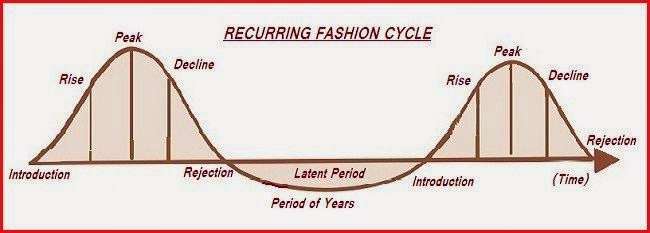
How this behavior affects the designers and the trend cycle?
Y2K, Haute mess, and dopamine dressing have been omnipresent aesthetics season on season. This is due to the presence of social media which has made the trend cycle totally irrelevant. The trend cycle has totally been disrupted, in order to cope with the current pace of fast fashion. The most affected by this effect are the creators, i.e., the design team. Keeping the commercial side of the industry, there is a huge capital and social risk involved in making an extreme shift in fashion, any designer or creator, thus, forecasts designs based on keeping such analysis in consideration.
The cyclic nature of fashion is also highly driven by consumer demand. When a particular trend or style becomes popular, designers and retailers may continue to create similar designs to meet the demand of consumers, resulting in a cyclic fashion. This inconsistency however can be daunting for the designers to match their creativity with the demand.
Regardless, the change is inescapable. The cyclic nature of fashion means that trends are constantly evolving and changing. What was popular last season may not be popular this season. This keeps the industry dynamic and constantly pushes designers to come up with new ideas. Anyhow, the industry has to overcome this challenge, because the cyclical nature of fashion is not just a phenomenon it is also a necessity.
What is the need for fashion repeat?
Oftentimes fashion repeats itself for several reasons, for instance,
- “What sells repeats”: fashion is often cyclical because designers and consumers alike tend to draw inspiration from the past when creating and selecting new styles. By looking back at what has worked in the past, they can create new designs that feel both fresh and familiar.
- Sustainability is the trend in fashion, thus people demand more for the same which results in making the sustainable brand look for the same fashion trend. Repeating designs and styles can also promote sustainability in the fashion industry.
- Act as a mode to preserve value and keep traditions alive. Talking about the classics, Another reason why fashion repeats itself is that certain styles and designs are simply timeless. Classic pieces like trench coats, little black dresses, and leather jackets have been in style for decades and continue to be popular today.
- Cost-effective and efficient: Sometimes repeating popular designs or styles can be more efficient than constantly creating new designs from scratch. This can save time and resources, which can be particularly important for smaller fashion brands and independent designers.
- Shows Brand consistency: Fashion brands often have a distinct identity or aesthetic that they want to maintain across their collections. Repeating certain design elements or styles can help establish and maintain a consistent brand identity.
Conclusion
The trend cycle is always subject to a range of complex and interrelated factors, and it can be difficult to predict how these factors will interact and shape the economy in the years to come. The cyclic nature of fashion is a fundamental aspect of the industry. Fashion trends tend to cycle through various styles and motifs, with designers and consumers drawing inspiration from past eras and incorporating them into new designs. This phenomenon can be both a source of inspiration and a challenge for designers, as they strive to create new and innovative designs that also appeal to consumers.
Fashion repetition can also be driven by consumer demand, brand identity, cost and efficiency, and sustainability. While some may see fashion repetition as a drawback, it is a necessary part of meeting the needs of the industry, preservation, and promoting sustainability. Overall, the cyclic nature of fashion is a dynamic and ever-evolving aspect of the industry, reflecting broader cultural and societal trends while also inspiring new ideas and styles.

